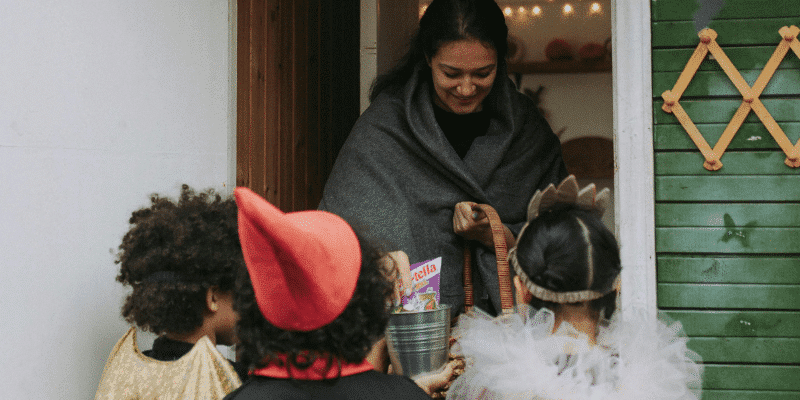8 Ways Latinas in the U.S. Can Reconnect with Their Roots
For many Latinas living in the U.S., the fear of losing connection to their roots can feel overwhelming. Navigating between two cultures can make you feel like you’re straddling worlds, sometimes not fitting fully into either of them. But don’t worry—there are plenty of ways to stay grounded in your Latino heritage while embracing life in the States. Here are 8 simple things you can do to feel connected and celebrate your roots in your everyday life:
Celebrate Traditional Holidays and Festivals

Nothing brings you closer to your heritage than celebrating Latino holidays and festivals. Whether it’s Día de los Muertos, Las Posadas, or Carnaval, participating in these cultural events can fill you with a sense of belonging. You don’t have to go all out if you’re short on time—simple things like cooking traditional meals, setting up an altar, or attending a local event can go a long way in keeping you connected.
Practice Your Spanish or Rock Your Spanglish
Language is a powerful connector to our heritage. Even if you’re not fluent, using Spanish (or your family’s native language) in everyday conversations can help you maintain that tie to your roots. Call up your abuela or cousins and practice! Bilingualism is not just a skill—it’s a bridge to your culture. If you still don’t master Spanish as a second language, Spanglish is just as valid! Just remember, being able to speak Spanish or your family’s native language doesn’t make you more or less Latina. It’s a skill and it can help you connect to your roots, yes, but it’s not the end-all-be-all.
Explore Latino Art and Music
From reggaeton and salsa to mariachi and folkloric dances, Latino music is vibrant, diverse, and full of soul. Attending local concerts featuring Latino artists or creating a playlist with the sounds that remind you of home is a great way to connect to your roots on a daily basis. Art also plays a huge role in keeping cultural narratives alive, so keep an eye on Latino authors, local exhibitions by Latino artists, and more.
Get Involved in Your Local Latino Community

Community is everything in Latino culture, and staying involved locally can keep that sense of connection strong. That’s not limited to just your family, though, so make sure to venture into your local Latino community. Volunteer at community centers, attend cultural events or join a Latino-focused organization. These are great ways to meet like-minded Latinos and stay rooted in shared traditions while nurturing new friendships. These spaces also offer opportunities to support one another and learn more about the issues affecting Latinos in the U.S.
Cook Traditional Food from Your Native Country
Food is a universal language, and nothing brings back childhood memories quite like the smells of a dish that’s been passed down through generations. Make an effort to cook traditional recipes from your family’s country of origin, whether it’s tamales, arepas, empanadas, arroz con gandules, or anything in between. Cooking these meals is not only a great way to stay connected but also an opportunity to share your culture with your children if you’re a parent or your friends and close circle.
Teach Your Kids About Your Culture

Speaking of which, if you’re a mother, passing on your cultural heritage to your children is one of the most beautiful ways to keep traditions alive. Share stories, cook together, and teach them about the significance of certain holidays and traditions. Even if they don’t grow up in a Latino-majority environment, the simple act of teaching your children about their Latino culture will instill a sense of pride in their heritage. This will help them stay connected with their roots as well and strengthen their cultural identity.
Travel to Your Homeland
There’s nothing quite like experiencing your culture firsthand. If possible, make trips to your homeland a part of your yearly or bi-yearly routine. Whether you’ve never been to your homeland or you haven’t been there since you moved to the U.S., visiting and spending some time there will immerse you in the culture and reignite or recharge your sense of belonging. If travel isn’t really an option for you, staying connected to your local Latino community is the next best thing.
Keep Your Family Traditions Alive

Whether it’s your family’s Sunday dinner routine, a special holiday tradition, traditional fashion or hairstyles, or a spiritual practice, keeping those customs alive can be an anchor for you. Even if you’re far from your family or feel disconnected from your Latino culture, practicing these traditions will remind you of your heritage and keep it close at heart. Mundane customs and small moments can create a sense of connection in your everyday life, even when you’re miles away from where your roots begin.
By staying engaged with your heritage through these practices, you can maintain a strong connection to your Latino roots while still navigating life in the U.S. Your culture is a vital part of who you are, and it’s something that should be celebrated every day, so make sure to do that in any way you can.




